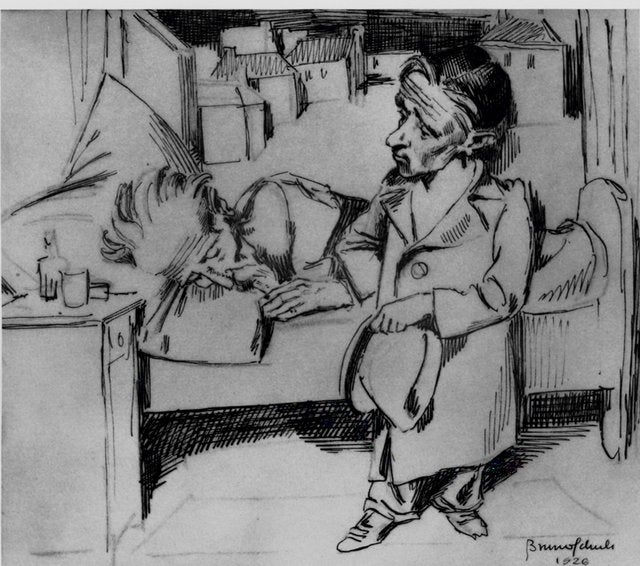Bruno Schulz was one of two great Polish fiction writers of the two decades between the wars, and so luckless was he, so lucky are we by comparison, that we may read his complete works in one long, trash-blown, weedy, windy, starry, swirling, Lower Carpathian day. His complete surviving works, that is—and that is the legendary pity of it. Such a day need not even take up your time, for you may go there in time according to Schulz, a limb of freak time that sprouts seamlessly out of time as we think we know it.
Bruno Schulz was one of two great Polish fiction writers of the two decades between the wars, and so luckless was he, so lucky are we by comparison, that we may read his complete works in one long, trash-blown, weedy, windy, starry, swirling, Lower Carpathian day. His complete surviving works, that is—and that is the legendary pity of it. Such a day need not even take up your time, for you may go there in time according to Schulz, a limb of freak time that sprouts seamlessly out of time as we think we know it.








